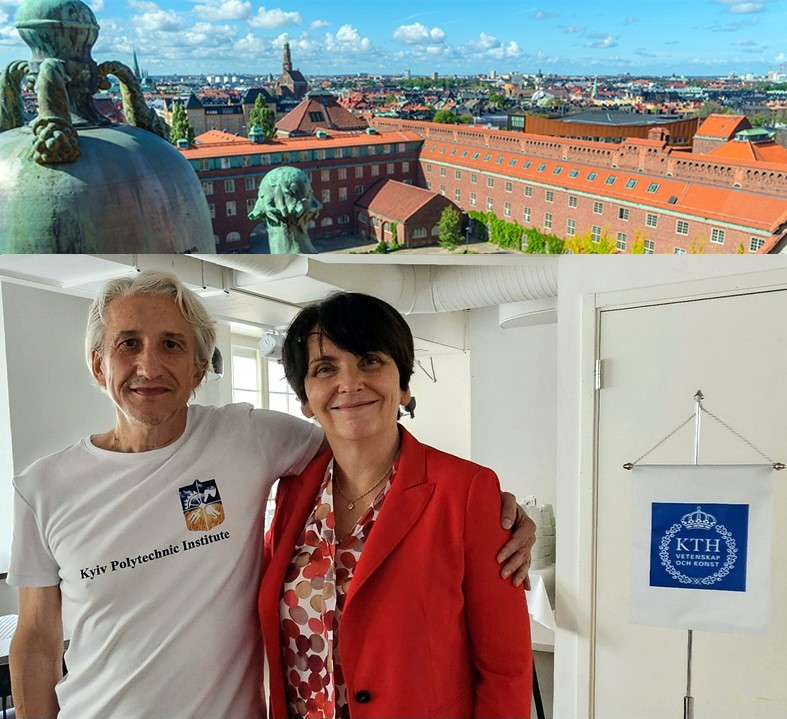 A delegation from the Igor Sikorsky Kyiv Polytechnic Institute attended the 2nd CESAER Task Force Benchmark meeting on June 17, followed by a joint workshop for Task Force Benchmark and the Board of Directors on June 18. Both events were hosted by the KTH Royal Institute of Technology in Stockholm.
A delegation from the Igor Sikorsky Kyiv Polytechnic Institute attended the 2nd CESAER Task Force Benchmark meeting on June 17, followed by a joint workshop for Task Force Benchmark and the Board of Directors on June 18. Both events were hosted by the KTH Royal Institute of Technology in Stockholm.
The workshop, titled “Reimagining University Rankings: Exploring Strategic Priorities and Alternatives,” aimed to explore strategic options for the CESAER association.
The agenda began with updates on the European Higher Education Sector Observatory (EHESO) and a transition to using Microsoft Teams for task force activities. In addition, significant developments in European higher education policy, particularly regarding the European University Alliances and a blueprint for the joint European degree, were highlighted. A new initiative led by Eindhoven University of Technology, in partnership with Elsevier, was also introduced, aiming to measure university connectedness with a focus on knowledge transfer and regional ties.
Discussions centered around recent developments and key strategic issues surrounding university rankings, including the use of key performance indicators (KPIs) as a proxy for a measuring strategy.
Specifically, the task force discussed the adoption of the Annual Member Monitor (AMM) for 2024, with concerns raised about using QS data due to its incompleteness and varying data definitions. Participants acknowledged that rankings remain an essential tool but noted the difficulty of entirely avoiding them due to their influence on national budget allocations, particularly in Ukraine.
In the final part of the meeting, member universities shared experiences with key performance indicators (KPIs). Presentations from the Swiss Federal Institute of Technology Lausanne and KTH highlighted the complexity of selecting appropriate KPIs and the challenges in measuring factors such as educational quality and student improvement. Members emphasized the importance of a bottom-up approach, including input from researchers and scientists, and discussed the potential of KPIs to foster valuable institutional discussions.
Johan Blaus from KTH highlighted potential areas for improvement, such as capturing social impact and shifting from closed to open scienometric data sources. Furthermore, he advocated encouraging collaborations rather than competition among universities, as competition runs counter to the principles of open science. Participants pointed out that the scientific quality of joint programs should be the primary benchmark for research.
The workshop also addressed the practical implications of university rankings. In this context, Kyiv Polytechnic should leverage good ranking results for marketing purposes, thereby enhancing its visibility and appeal to prospective students and partners.
Upcoming meetings and events were also confirmed, including the in-person meeting in Bucharest in spring 2025, hosted by the National University of Science and Technology POLITEHNICA Bucharest.
Overall, the meetings provided valuable insights into reimagining university rankings, and strategic directions for the CESAER association and its member institutions. The discussions underscored the importance of collaboration, transparency, and the social impact of academic work. Igor Sikorsky Kyiv Polytechnic Institute, along with other member institutions, stands to gain by adopting these perspectives.
